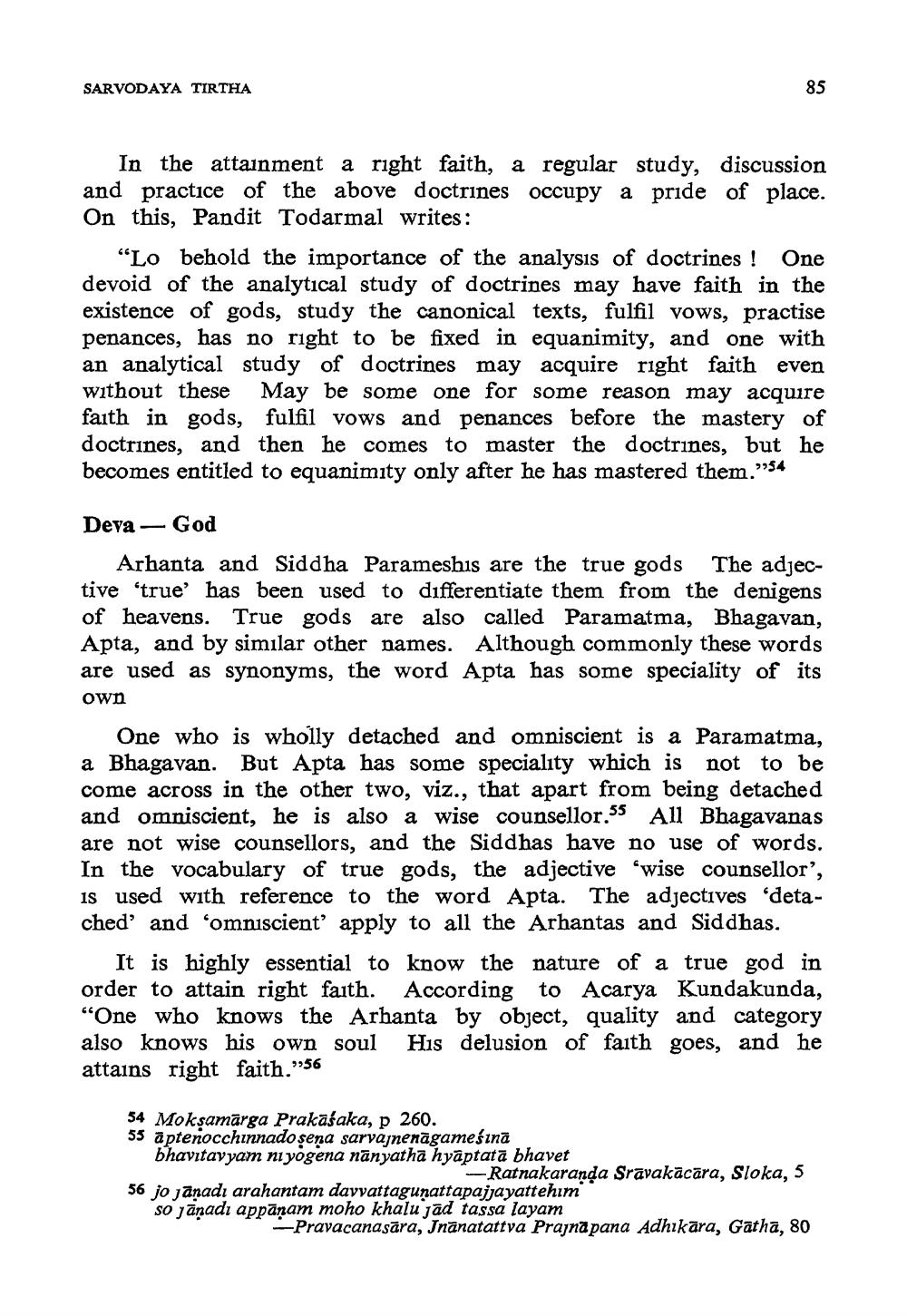________________
SARVODAYA TIRTHA
In the attainment a right faith, a regular study, discussion and practice of the above doctrines occupy a pride of place. On this, Pandit Todarmal writes:
“Lo behold the importance of the analysis of doctrines ! One devoid of the analytical study of doctrines may have faith in the
ence of gods, study the canonical texts, fulfil vows, practise penances, has no right to be fixed in equanimity, and one with an analytical study of doctrines may acquire right faith even without these May be some one for some reason may acquire faith in gods, fulfil vows and penances before the mastery of doctrines, and then he comes to master the doctrines, but he becomes entitled to equanimity only after he has mastered them."54
Deva - God
Arhanta and Siddha Parameshis are the true gods The adjective 'true' has been used to differentiate them from the denigens of heavens. True gods are also called Paramatma, Bhagavan, Apta, and by similar other names. Although commonly these words are used as synonyms, the word Apta has some speciality of its own
One who is wholly detached and omniscient is a Paramatma, a Bhagavan. But Apta has some speciality which is not to be come across in the other two, viz., that apart from being detached and omniscient, he is also a wise counsellor.55 All Bhagavanas are not wise counsellors, and the Siddhas have no use of words. In the vocabulary of true gods, the adjective "wise counsellor', is used with reference to the word Apta. The adjectives detached' and 'omniscient apply to all the Arhantas and Siddhas.
It is highly essential to know the nature of a true god in order to attain right faith. According to Acarya Kundakunda, “One who knows the Arbanta by object, quality and category also knows his own soul His delusion of faith goes, and he attains right faith."56
54 Moksamārga Prakāšaka, p 260. 55 aptenocchinnado sena sarvajnenāgamesina bhavitavyam niyogena nānyatha hyāptata bhavet
-Ratnakaranda Sravakācāra, Sloka, 5 56 jo janadı arahantam davvattagunattapajayattehim So yanadı appānam moho khalu jad tassa layam
-Pravacanasāra, Jnanatattva Prajna pana Adhikara, Gatha, 80




